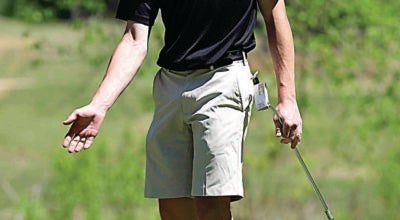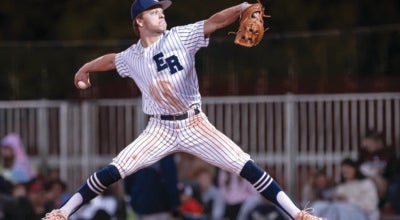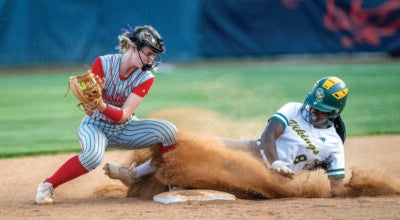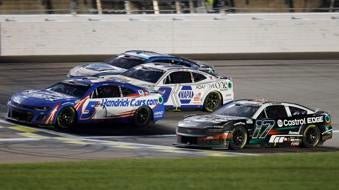Skating: Harding-Kerrigan still the scandal for the ages
Published 12:00 am Thursday, March 5, 2009
By Gwen Knapp
San Francisco Chronicle
Fifteen years later, the greatest scandal in sports history still defies belief.
A lot of the principal figures have changed dramatically. Nancy Kerrigan, once as awkward around a microphone as she was graceful on the ice, has become articulate and even sanguine about her role as the drama’s victim. The figure-skating boom that followed Kerrigan’s knee whacking ó and accusations that rival Tonya Harding engineered it ó has fizzled.
The 38-year-old Harding, however, has retained the power to astonish, telling “HBO Real Sports with Bryant Gumbel” in an interview airing this week that she started getting promotional-appearance offers again after President Obama used her name on the campaign trail, saying pundits assumed he had to knee cap Hillary Rodham Clinton to win the Democratic nomination.
At the same time, she claimed that she couldn’t escape the notoriety of the incident, saying bitterly: “How much responsibility do you think I need to take?”
“She’s oblivious,” Brian Boitano said when he heard about her interview. The 1988 gold medalist who knew Harding well as a young skater and marveled at her talent. He made a comeback in 1994, a decision that counted as one of the biggest stories leading up to the Lillehammer Olympics, and then …
Instead of making history, he became more of a witness to it. He refers to the atmosphere around the practice rink at the 1994 Olympics as “the Connie Chung fur-coat black cloud.” He remembers the CBS co-anchor dressed in her wintry finery coming into the arena in Norway, going to the side of the rink and yelling “Tonya, Tonya.”
“I thought ‘What is Connie Chung doing here?’ ” Boitano said this week, the anniversary of the figure-skating competition in Lillehammer. “The way she came in, I was like ‘This ain’t the Olympics anymore.’ We went tabloid. It was very dark.”
He and other Olympians, he said, figured that once Kerrigan had recovered from her injuries in time to compete, the story would be over. Silly man, he thought that hard work and excellence and the grand tradition of the Olympics had more value than a tawdry act of violence.
Every sports scandal before or since has been a trifle compared with this one. The 1919 White Sox? What do you expect when you pay athletes peanuts and gamblers are willing to offer much more? Steroids? They’re a disgrace, but not terribly shocking. They’ve been tied to every sport imaginable. There was only one Nancy and Tonya.
In the weeks before the Olympics, CBS thought that scandal would bump up its ratings for the women’s competition, but that the tape-delayed presentation would limit the numbers. I remember interviewing a network executive who thought I was delusional when I said they’d get a Super Bowl audience.
I wasn’t entirely right. The telecast of the short program, the first round of the event, drew 48.5 percent of households, better than all but two Super Bowls. The skating remains the sixth highest rated show in TV history and No. 1 over the last 25 years.
Kerrigan ended up winning the silver medal, while Harding took eighth after asking for a do-over in her long program because of a broken lace in her skates.
In the years after that, figure skating threatened to supplant baseball and basketball as football’s bridesmaid in the U.S. sports audience’s affections. CBS started “Ice Wars,” a team competition matching pro skaters from the U.S. against a contingent from the rest of the world, that year. It lasted until 2006.
“What hurt it long-term was over-saturation,” Boitano said. “There were 13 prime-time competitions one year, and then there were the shows. There were so many. The networks were making so much money, they’d take anything. You could have gone to a network and said, ‘We want to do “Snow Cones on Ice with Brian and Kristi (Yamaguchi),” and they’d have said, ‘We’ll buy it.’ There was a lot of crap.”
Plus, over the years, the sports’ rock stars faded, without replacements coming up. U.S. men have produced no gold medals since Boitano in 1988, and only two medals of any color..
The women, Boitano points out, have done well in the Games, but the last two champs won gold as teenagers and then didn’t stick as pros. Tara Lipinski tried, but hip injuries derailed her career. Sarah Hughes enrolled at Yale.
Boitano, now 45, still skates in his own TV shows. (Five are in the works for NBC this year.) He also mentors two young stars. It’s almost better, he thinks, when success doesn’t come easily to an athlete.
Boitano has noticed that the most dazzlingly gifted skaters rarely pull themselves together and take the big prizes. Some of them fall apart. Like Christopher Bowman, who died of a drug overdose in a Los Angeles motel at age 40 last year. And like Harding.
“Oh, she was so talented,” Boitano said, drawing out his words, a reminder of what got lost in Tabloid Tonya.





